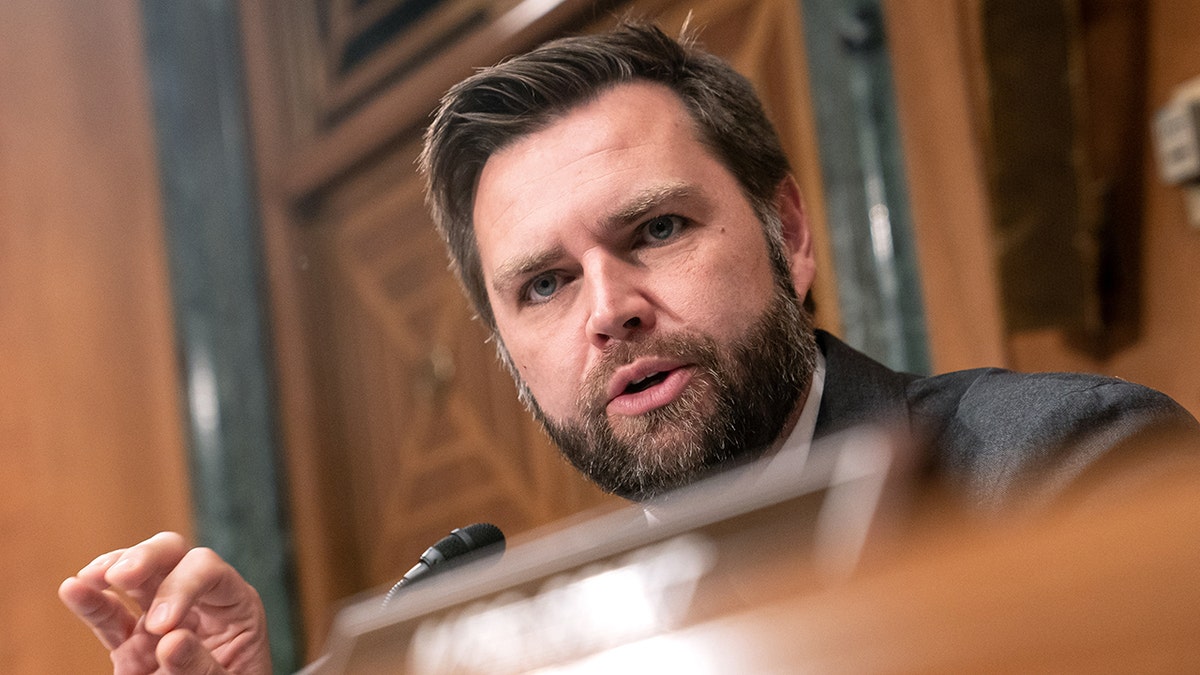Biden's Response To Trump's Russia-Ukraine Policy: Vance's Criticism

Table of Contents
Trump's Russia-Ukraine Policy: A Foundation for Criticism
Donald Trump's presidency was marked by an often-ambiguous relationship with Russia, leading to considerable criticism regarding his handling of the Russia-Ukraine situation. His administration's approach was characterized by a perceived reluctance to confront Russian aggression directly, a stance that has become a central point of contention.
Key events and policy decisions fueling this criticism include:
- Meetings with Putin: The numerous meetings between Trump and Vladimir Putin, often conducted without significant US staff present, raised concerns about undue influence and a lack of transparency.
- Withholding Aid: The infamous episode involving the withholding of military aid to Ukraine in 2019, allegedly linked to pressure on Ukrainian President Zelenskyy to investigate the Bidens, drew intense scrutiny and triggered impeachment proceedings.
- Downplaying Russian Interference: Trump's repeated downplaying of Russian interference in the 2016 and 2020 US elections, often echoing Russian narratives, further fueled concerns about his commitment to countering Russian aggression.
Criticisms of Trump's Ukraine policy specifically included:
- A perceived appeasement of Russia at the expense of Ukraine's sovereignty.
- The weakening of US alliances in Eastern Europe.
- A failure to adequately deter Russian aggression.
- The undermining of democratic institutions in Ukraine through indirect support of pro-Russian elements.
The impact of Trump's policies on US-Ukraine relations was undeniably negative, fostering uncertainty and eroding trust at a critical juncture.
Biden's Shift in Approach: A Contrast with Trump's Legacy
President Biden's approach to the Russia-Ukraine conflict represents a significant departure from his predecessor's. His administration has prioritized strengthening alliances, providing substantial military and financial aid to Ukraine, and imposing robust sanctions against Russia.
This shift is evidenced by:
- Increased Military and Financial Aid: Biden has overseen a dramatic increase in military and financial assistance to Ukraine, providing crucial support for its defense against Russian aggression. This includes lethal aid like Javelins and Stingers, as well as significant financial packages.
- Strengthened NATO Alliances: Biden has actively sought to strengthen alliances with NATO members and European partners, fostering a unified front against Russian aggression. This has involved increased military deployments and joint exercises.
- Robust Sanctions Regime: The Biden administration has implemented a wide-ranging sanctions regime targeting Russian individuals, entities, and sectors of the economy, aiming to cripple the Russian war machine.
Specific actions taken by the Biden administration include:
- The provision of billions of dollars in military and humanitarian aid to Ukraine.
- The imposition of sweeping sanctions on Russia's financial system, energy sector, and key individuals.
- The expulsion of Russian diplomats from the United States.
- The bolstering of NATO's eastern flank with increased troop deployments.
Biden's rhetoric towards Russia has been far more assertive than Trump's, unequivocally condemning the invasion of Ukraine and vowing to hold Russia accountable.
Senator Vance's Critique: Specific Points of Contention
Senator J.D. Vance, a Republican from Ohio, has emerged as a prominent critic of Biden's Ukraine policy. His objections stem largely from a perspective emphasizing American interests and a skepticism towards expansive foreign commitments.
Vance's criticisms typically include:
- Concerns about the financial cost of supporting Ukraine, arguing it diverts resources from domestic priorities.
- Skepticism regarding the strategic value of the conflict for the United States.
- A belief that the Biden administration's approach escalates the conflict unnecessarily.
While Vance doesn't necessarily offer concrete alternative policy suggestions, his critiques highlight a broader Republican sentiment questioning the wisdom and effectiveness of continued, extensive aid to Ukraine. His pronouncements should be viewed within the context of the broader Republican debate on US foreign policy and the ongoing political polarization surrounding the conflict.
Analyzing the Effectiveness of Both Approaches
Assessing the effectiveness of both Trump's and Biden's approaches requires a nuanced analysis. Trump's policy, characterized by ambiguity and perceived appeasement, arguably emboldened Russia and ultimately failed to deter the invasion of Ukraine. While sanctions were imposed during the Trump administration, they were far less comprehensive and forceful than those implemented by Biden. This ultimately led to a demonstrably worse security situation in Europe.
Biden's approach, while costly, has demonstrably galvanized international support for Ukraine and imposed significant economic and political pressure on Russia. However, the conflict continues, highlighting the complex and multifaceted nature of the situation. The long-term effectiveness of both approaches remains to be seen.
Comparing the approaches:
- Trump: Limited support for Ukraine, ambiguity towards Russia, potentially emboldened aggression.
- Biden: Strong support for Ukraine, robust sanctions against Russia, strengthened alliances, but prolonged conflict and high costs.
The ultimate success or failure of each approach will be judged by historians based on the long-term consequences for Ukraine, Russia, and the broader international order.
Conclusion: Evaluating Biden's Response and the Ongoing Debate
The contrasting approaches of Presidents Trump and Biden towards the Russia-Ukraine conflict highlight fundamental differences in foreign policy philosophy. While Trump's approach was marked by ambiguity and a perceived reluctance to confront Russia, Biden's administration has prioritized strong support for Ukraine and a concerted effort to isolate Russia internationally. Senator Vance's criticisms, while often framed within a particular political context, contribute to the ongoing national conversation about the appropriate level of US involvement and the strategic goals of US foreign policy. Understanding the nuances of both Trump's Russia policy and Biden's response is essential to grasping the complexities of the situation.
Continue your research on Biden's Ukraine policy, examining Vance's criticism and its impact on the Russia-Ukraine conflict. A thorough understanding requires consideration of all perspectives and an awareness of the evolving geopolitical landscape.

Featured Posts
-
 Rays Sweep Padres In Dominant Series
May 16, 2025
Rays Sweep Padres In Dominant Series
May 16, 2025 -
 Big Savings On Sneakers Nike Air Dunks Jordans And More At Foot Locker
May 16, 2025
Big Savings On Sneakers Nike Air Dunks Jordans And More At Foot Locker
May 16, 2025 -
 Dodgers Muncy Torpedo Bat Test Ends In Game Tying Hit
May 16, 2025
Dodgers Muncy Torpedo Bat Test Ends In Game Tying Hit
May 16, 2025 -
 The Jalen Brunson Injury Highlighting The Knicks Depth Issues
May 16, 2025
The Jalen Brunson Injury Highlighting The Knicks Depth Issues
May 16, 2025 -
 Auction Results Kid Cudis Possessions Sell For Unexpectedly High Prices
May 16, 2025
Auction Results Kid Cudis Possessions Sell For Unexpectedly High Prices
May 16, 2025
